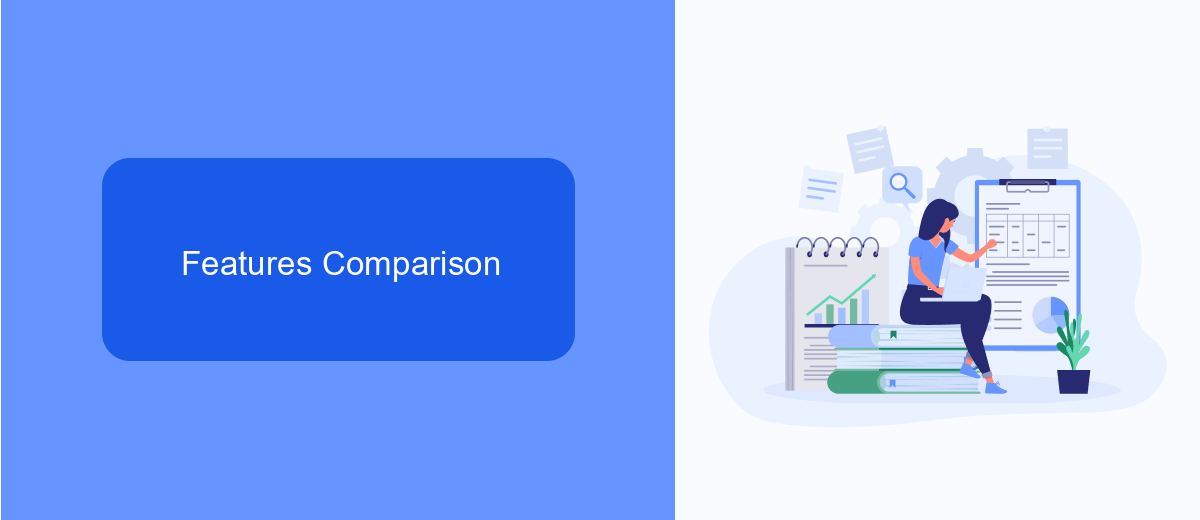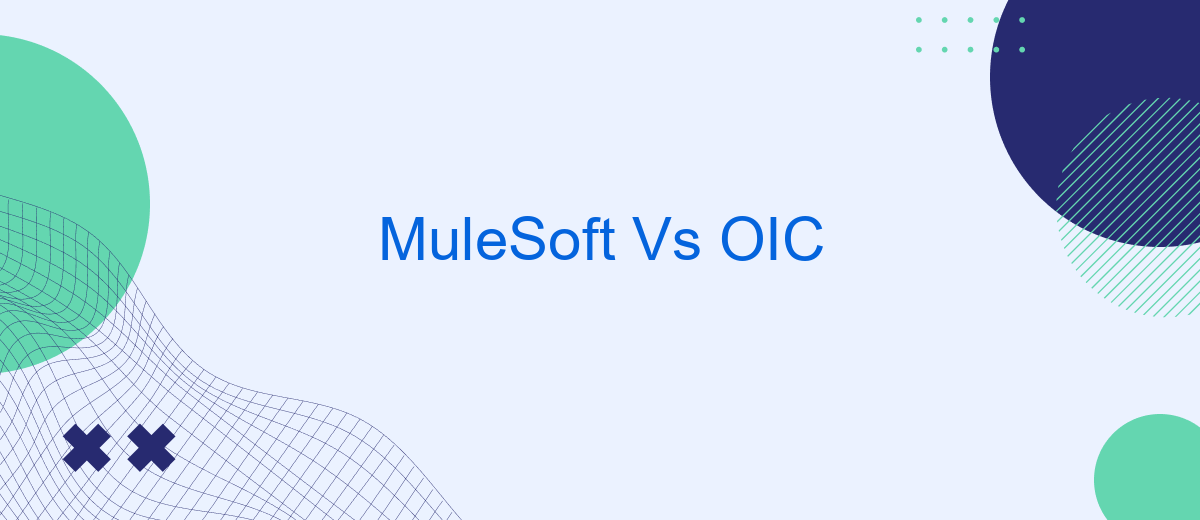In the rapidly evolving landscape of integration platforms, MuleSoft and Oracle Integration Cloud (OIC) stand out as two leading solutions. Both offer robust tools for connecting applications, data, and devices, but they differ significantly in their features, capabilities, and use cases. This article delves into a comparative analysis of MuleSoft and OIC to help you decide which platform best suits your needs.
Introduction
In today's digital landscape, seamless integration of various software applications is crucial for businesses to operate efficiently. Two popular integration platforms that have gained significant traction are MuleSoft and Oracle Integration Cloud (OIC). Both offer robust solutions for connecting disparate systems, automating workflows, and ensuring data consistency across platforms.
- MuleSoft: Known for its comprehensive API management and connectivity capabilities.
- Oracle Integration Cloud (OIC): Offers pre-built integrations and advanced analytics features.
- SaveMyLeads: Provides an easy way to automate lead data transfer between various platforms.
This article aims to compare MuleSoft and OIC, exploring their features, strengths, and weaknesses to help businesses make an informed decision. Whether you're looking to streamline your operations, enhance data accuracy, or improve overall efficiency, understanding the differences between these platforms is essential. Additionally, tools like SaveMyLeads can complement these integration platforms by simplifying the automation of lead data transfer, further enhancing your business processes.
Features Comparison

MuleSoft and Oracle Integration Cloud (OIC) are two leading platforms for enterprise integration, each offering a range of features to facilitate seamless connectivity across diverse systems. MuleSoft boasts a robust API-led approach, supporting a wide array of connectors and pre-built templates that simplify integration tasks. It provides extensive support for real-time data processing and transformation, making it ideal for complex enterprise environments. Additionally, MuleSoft's Anypoint Platform offers a unified solution for API management, design, and analytics, ensuring comprehensive control over the integration lifecycle.
On the other hand, OIC excels in its ability to integrate with Oracle applications and databases, leveraging Oracle's extensive ecosystem. It offers a visual development environment that simplifies the creation and deployment of integrations, making it accessible for both technical and non-technical users. OIC also supports a variety of integration patterns and comes with pre-built adapters for popular SaaS applications. For businesses looking to streamline their integration processes further, services like SaveMyLeads can be invaluable, automating data transfers and reducing manual intervention. Both platforms have their strengths, and the choice between them often depends on specific business needs and existing technology stacks.
Pricing and Licensing Models

When comparing MuleSoft and Oracle Integration Cloud (OIC), understanding their pricing and licensing models is crucial for making an informed decision. Both platforms offer robust integration solutions, but their cost structures can significantly impact your budget.
- MuleSoft: MuleSoft operates on a subscription-based pricing model, which includes different tiers based on the number of integration flows and the level of support required. The pricing is typically higher, reflecting its enterprise-grade features and comprehensive support.
- Oracle Integration Cloud: OIC also follows a subscription-based model, but it offers more flexibility with pay-as-you-go options. Pricing is based on the number of messages processed and the amount of data transferred, making it potentially more cost-effective for smaller projects.
Choosing between MuleSoft and OIC depends on your specific needs and budget constraints. For businesses that require extensive support and advanced features, MuleSoft might be the better option. However, for those looking for a more flexible and potentially lower-cost solution, OIC could be more suitable. Additionally, services like SaveMyLeads can further streamline your integration processes, offering pre-built connectors that save time and reduce costs.
Advantages and Disadvantages

When comparing MuleSoft and Oracle Integration Cloud (OIC), it's important to consider both the advantages and disadvantages of each platform. MuleSoft is known for its robust API-led connectivity and extensive library of pre-built connectors, making it a popular choice for complex integrations. On the other hand, OIC offers seamless integration with other Oracle products, providing a more cohesive ecosystem for organizations already using Oracle solutions.
Both platforms have their unique strengths and weaknesses. MuleSoft's flexibility and scalability make it ideal for large enterprises with diverse integration needs. However, its complexity can be a drawback for smaller organizations or those with limited technical expertise. OIC, while user-friendly and well-integrated with Oracle's suite, may not offer the same level of customization and flexibility as MuleSoft.
- MuleSoft: High flexibility and scalability, extensive connectors, but complex and potentially costly.
- OIC: User-friendly, seamless Oracle integration, but less flexible and customizable.
For businesses looking for a simpler solution to manage their integrations, services like SaveMyLeads can be a valuable alternative. SaveMyLeads offers an intuitive platform for automating lead data transfers and integrations without the need for extensive technical knowledge, making it an excellent choice for small to medium-sized enterprises.
Real-World Case Studies
In a real-world scenario, a leading retail company faced challenges in integrating its various e-commerce platforms and customer relationship management (CRM) systems. They decided to evaluate MuleSoft and Oracle Integration Cloud (OIC) for this purpose. After a thorough assessment, they chose MuleSoft for its robust API management capabilities and extensive connector library, which significantly reduced the time required to integrate their systems. This decision allowed them to streamline their operations, improve customer experience, and achieve a faster time-to-market for new features.
In another case, a financial services firm needed to integrate multiple legacy systems with modern cloud applications to enhance their service offerings. They opted for Oracle Integration Cloud (OIC) due to its pre-built adapters and seamless integration with other Oracle products. With the help of SaveMyLeads, they were able to automate the data transfer processes between different applications, minimizing manual intervention and reducing errors. This integration not only improved their operational efficiency but also provided them with real-time data insights, enabling better decision-making.
- Automate the work with leads from the Facebook advertising account
- Empower with integrations and instant transfer of leads
- Don't spend money on developers or integrators
- Save time by automating routine tasks
FAQ
What are the main differences between MuleSoft and Oracle Integration Cloud (OIC)?
Which platform is easier to use for beginners?
How do both platforms handle API management?
Can I use third-party services for automation and integration with these platforms?
Which platform offers better scalability?
If you use Facebook Lead Ads, then you should know what it means to regularly download CSV files and transfer data to various support services. How many times a day do you check for new leads in your ad account? How often do you transfer data to a CRM system, task manager, email service or Google Sheets? Try using the SaveMyLeads online connector. This is a no-code tool with which anyone can set up integrations for Facebook. Spend just a few minutes and you will receive real-time notifications in the messenger about new leads. Another 5-10 minutes of work in SML, and the data from the FB advertising account will be automatically transferred to the CRM system or Email service. The SaveMyLeads system will do the routine work for you, and you will surely like it.

